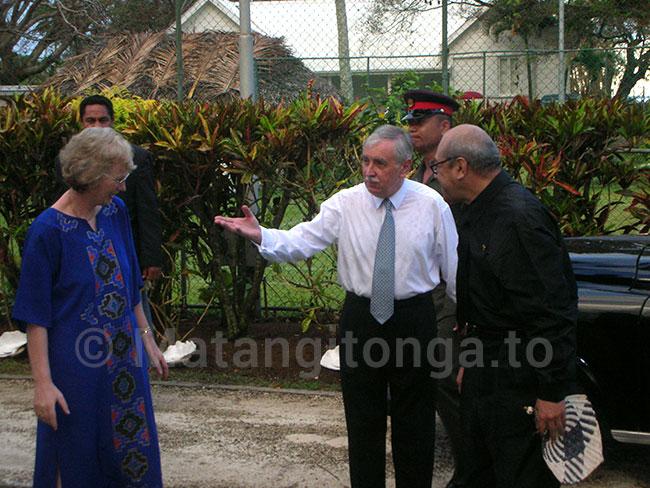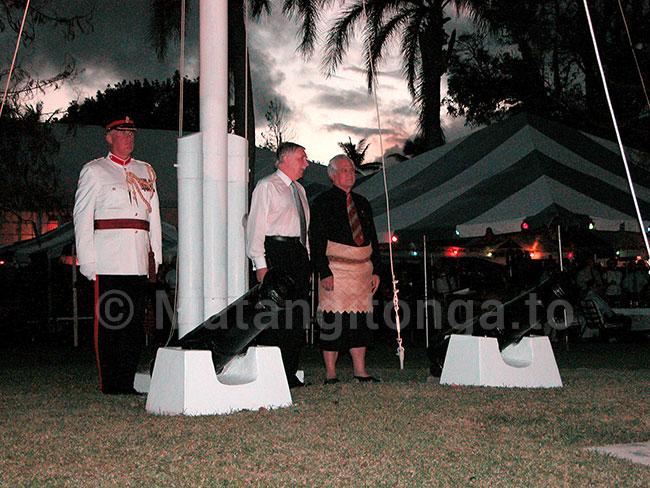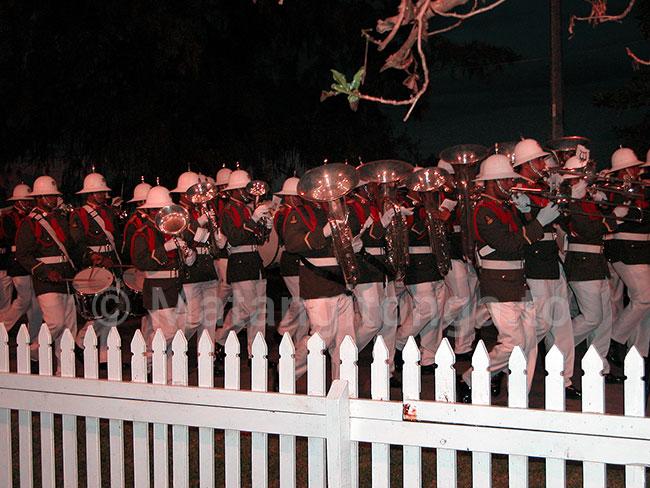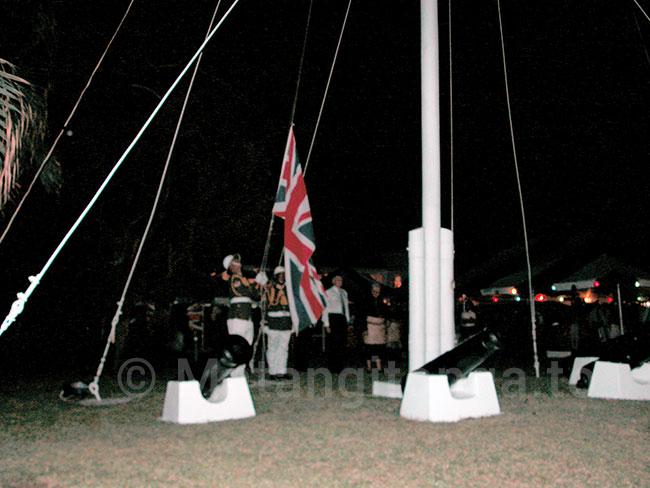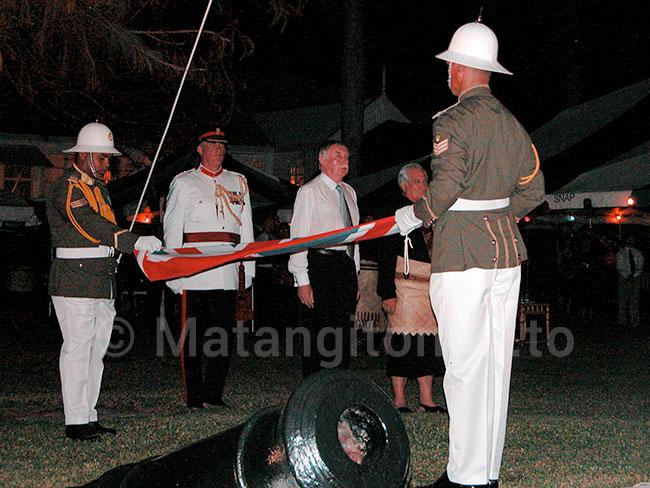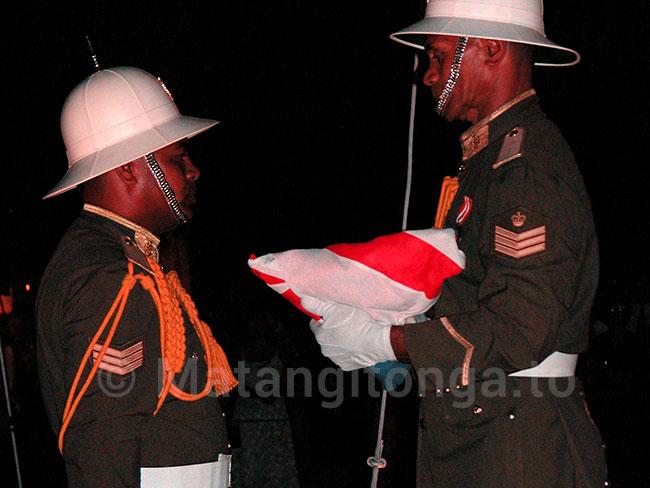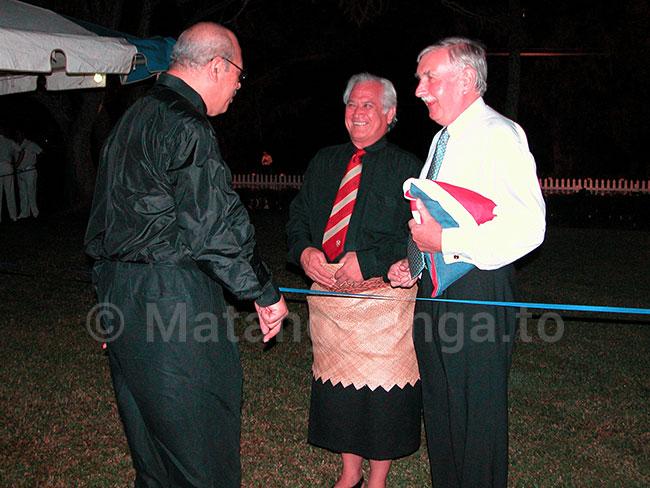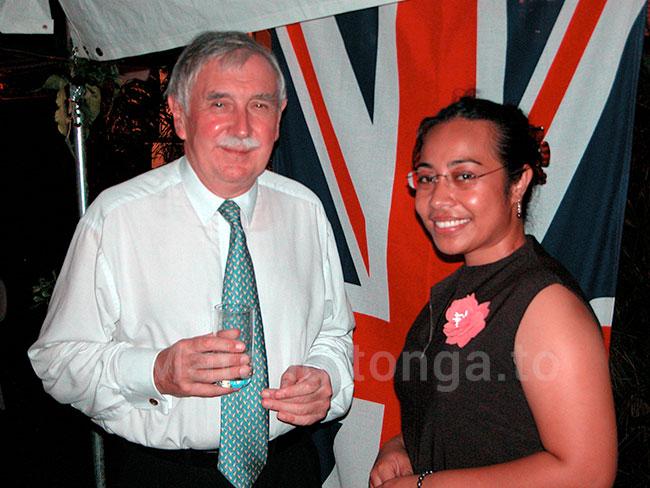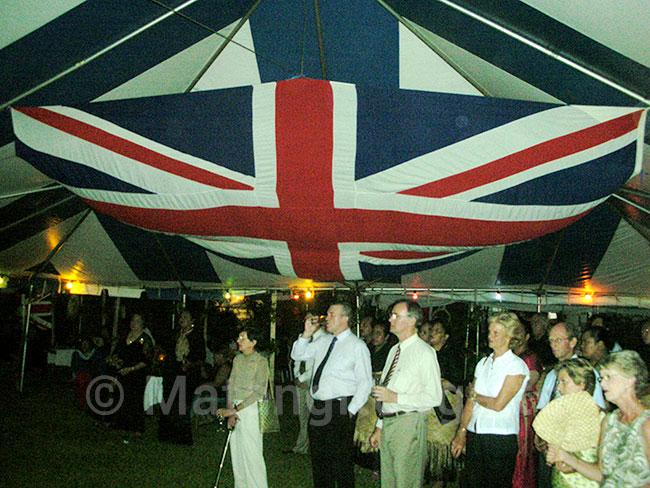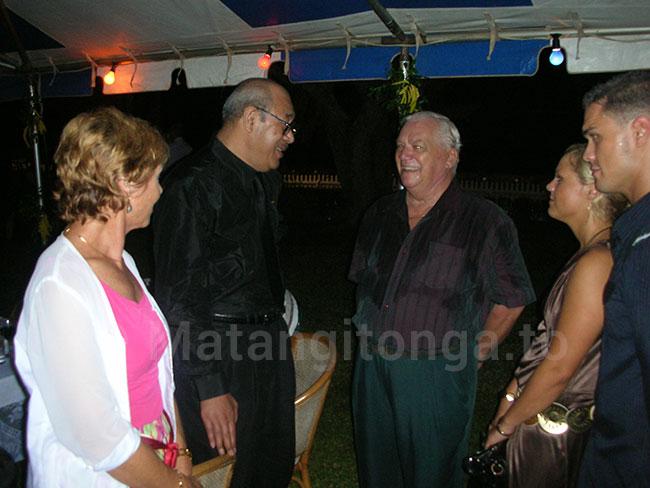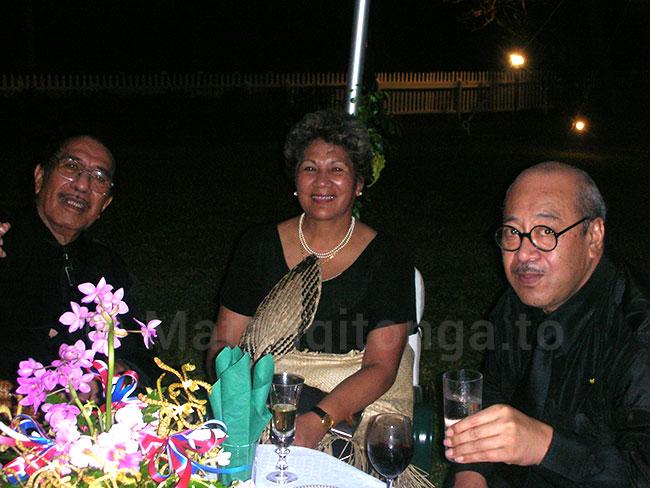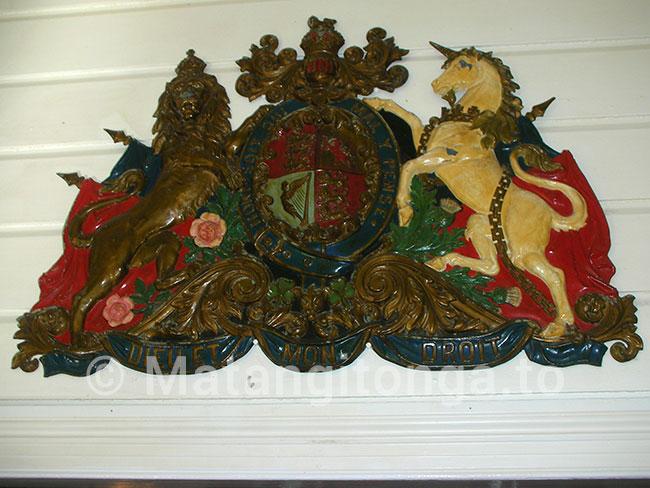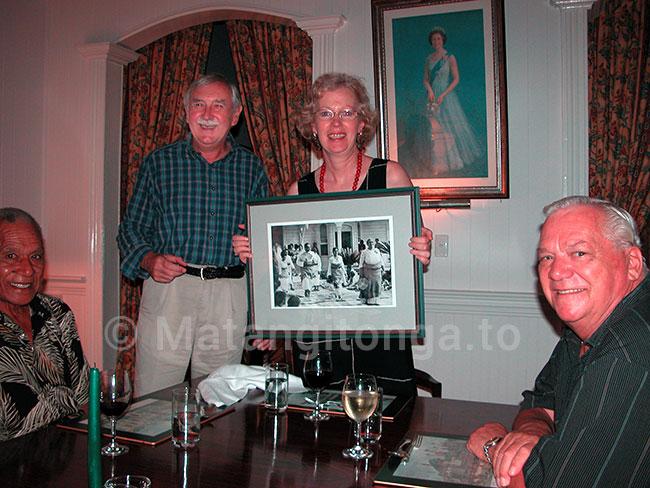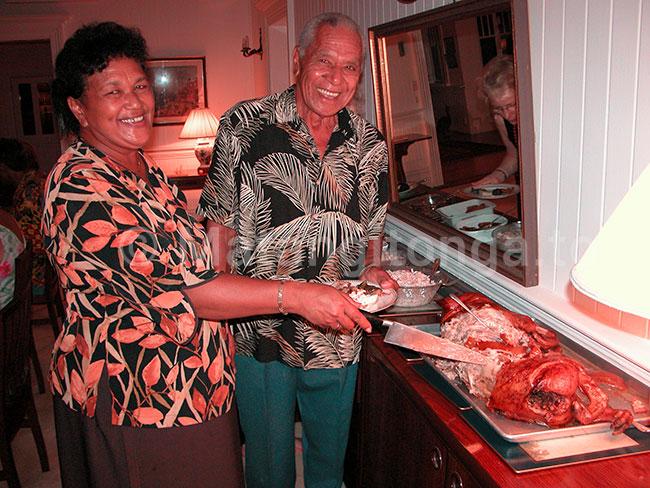
FROM OUR ARCHIVES
Photos © Pesi Fonua.
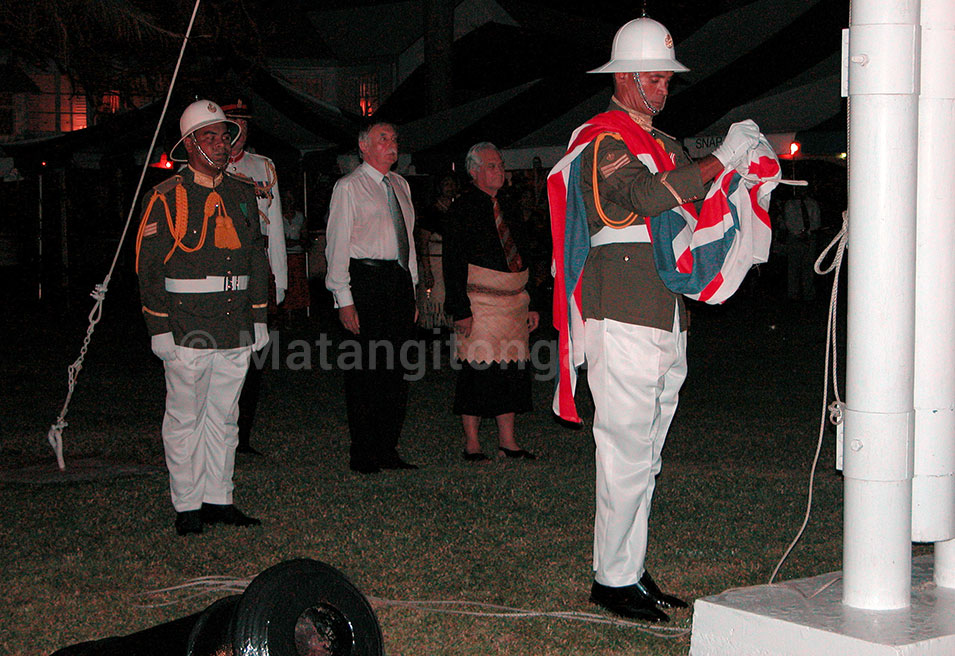
"I am both delighted and sad to welcome you all to this final ceremony at the British High Commission before we formally close at the end of March," said HE Paul Nessling, the British High Commissioner to Tonga, on the lawn of his residence on the evening of March 2 [2006].
Those few opening words of the High Commissioner's farewell speech also summed up the general feeling of about 400 guests who were at the century-old residence to witness for the last time the lowering of the Union Jack, the playing of the British National anthem and to toast HM Queen Elizabeth II, and the King of Tonga.
As the sun set over the immaculate white seafront villa, the 'Beating of the Retreat' was performed by the Tonga Defence Services musical troops, who marched past the white picket fence of the residency, where the guests had gathered under a marquee on the lawn. The troops fired a three volley salute before the Union Jack was formally lowered to the sound of the lament.
British ideals
The residence of the British High Commissioner has been the bastion of British and Western ideals in Tonga since its establishment about 105 years ago, and its closure marks the end of an era for the two peoples who live at opposite ends of the world. During those years Tongans have assimilated many British and Western ideas and called them their own. The British missionaries introduced Christianity, and formal education, and assisted in the establishment in of a Constitutional Monarchy system of government.
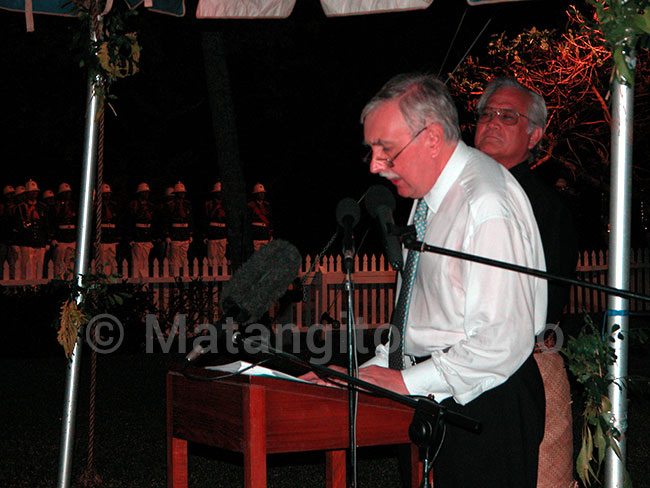
Mr Nessling said that the relationship between Britain and Tonga had been described as one ...of perpetual peace and friendship... and the bonds between the two nations had proved enduring. The first consulate was established in 1862, but since the time of Captain Cook and for more than two centuries "the paths of our two countries have been entwined."
He said that the British foreign service was being right sized and since 9/11 had been in constant transition. "In the Pacific this translates into regional representation in line with many other nations." Following his departure at the end of March, Tonga will be covered from Suva, Fiji.
Mr Nessling reflected that Tonga was enjoyed many blessings but to achieve progress in the modern world called for, "true visional leadership that can only come from a partnership of government, civil society and church that are committed to working together."
Prime Minister
The Acting Prime Minister of Tonga, Dr Feleti Sevele in response to HE Mr Paul Nessling's speech pointed out that during the past 200 years Tonga has been a faithful friend and ally of Britain. He reminded the gathering that Tonga soldiers fought and died for the British Empire in France and in Europe during the First World War, and during the Second World War Queen Salote and the people of Tonga bought three Spitfires, as Tonga's war contribution to Britain. In return, "the English language, education and culture have become the adopted extension and enrichment of Tongan way of life. Our judicial system is well-known for its integrity and respect for the rule of law - another rich and lasting legacy that we inherited from Britain."
Dr Sevele said that now Tongans faced formidable challenges. "We were ahead of the rest of the Pacific peoples...but, unfortunately, and rather sadly, we have lost that pride of place. We seem to have lost the traditional Tongan spirit of do-or-die, the will to succeed, and the determination to be among the best."
But he said that despite the current difficult economic and political climate, "we Tongans can rise to and overcome the challenges of regeneration and reformation - economically, politically and socially."
The formal lowering of the flag and reception was attended by the Prince Regent Crown Prince Tupouto'a, and guests included the Ambassador of the People's Republic of China, and from Fiji the President of the Fiji Court of Appeal and former Chief Justice of Tonga, Gordon Ward and Mrs Meg Ward, representatives of the European Union, and the Ambassador of the United States.
Hospitality
The closing of the British Residency also marks the end of an era of diplomatic hospitality, cocktails, dinner parties and garden parties enjoyed at the seafront colonial style residence.


